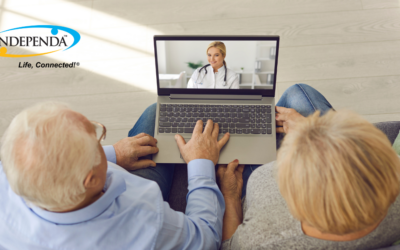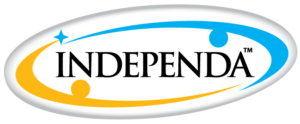In many ways, technology has brought family generations closer together. The vast majority of us carry around devices that support instant communication in our pockets, and social media provides an effortless means of staying up to date on each other's lives. Video conferencing also can make great distances feel small, and most phones, tablets and computers now come with the necessary equipment.
However, the difference in generations' use of technology and knowledge can also cause divides. The Pew Research Center reports that more than three-quarters of Americans age 65-plus carry cellphones, and six out of 10 are online. While this may seem impressive, it is still well below the average for younger age groups. Because younger generations do not want to alienate their older family members, or because they are unsure of their ability to explain the technology properly, they often avoid the subject.
This is unfortunate, because modern advancements can allow older adults to live more enriched, healthier and longer lives.
To begin talking to parents about technology and how it can benefit them, it is important to keep some concepts in mind. Many of the actions younger generations grew up performing every day, from handling a mouse to typing, may be more difficult for older adults. This may frustrate both parties, making it important to make the technology relevant and understand your parents' motivation for learning.
For example, a parent may have trouble staying focused on learning the basics of opening a web browser. However, once he understands that the skill will allow them to stay in contact with his grandchildren or listen to his favorite records, he will likely be more motivated to learn.
If difficulty persists, it may be time to seek outside help. Learning as part of a group may help older adults feel more confident about their technological prowess. The AARP holds regular free workshops with topics such as "Touchscreen Basics," "Photo Sharing" and "How to get started on Facebook."
It is also easier to avoid frustration as a teacher when you keep in mind that dexterity and sight fades with age. Screens grow harder to read, and seemingly simple actions such as highlighting text become more difficult.
Fortunately, there are technological solutions designed specifically to meet the needs of older adults. Independa offers a simple, intuitive technological solution that supports the activities of daily living. Our Angela™ user interface comes pre-installed on an LG television, and employs larger screen fonts, higher contrast and brighter colors as well as a host of other exciting features.
Care recipients enjoy one-touch access to video chat, integrated health information, messaging, games, medication reminders and easy photo sharing.
Independa's independent living aids are both easy to use and non-stigmatizing, meaning care recipients can enjoy the many benefits without feeling as if they are being singled out. Angela™ plays a key role in helping older parents embrace how technology can benefit their later years and help them remain safe, independent and comfortable.
Angela™ can also grow from an introduction to technology to a full-scale care solution when combined with Internet of Things (IoT) enabled sensors. Through accessing the Caregiver Dashboard, both family members and professional caregivers can enjoy greater peace of mind without having to check in several times an hour. Independa's solution, when used in conjunction with other home health care technology, can send alerts when something isn't quite right, as well as schedule Smart Reminders for events, medications and check ins, helping all parties feel more confident about aging in place. Contact us today to schedule a demo.
Do you have any experiences with talking to parents about technology? Please share your insights with us on our Facebook page.




